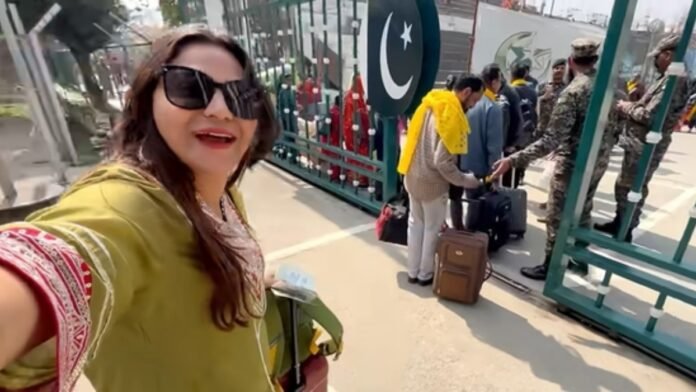
Key Points
- Haryana-based YouTuber Jyoti Malhotra, known for her channel ‘Travel with JO’, was arrested for allegedly spying for Pakistan.
- She is accused of sharing sensitive information and maintaining encrypted contact with Pakistani intelligence operatives.
- Malhotra reportedly visited Pakistan multiple times, attended events at the Pakistan High Commission, and promoted pro-Pakistan narratives online.
- Authorities say she was being developed as a long-term asset and had ties with an expelled Pakistani High Commission official.
- Her arrest is part of a wider crackdown on espionage networks in Haryana and Punjab.
Hisar, Haryana: Jyoti Malhotra, a popular travel vlogger from Haryana with over 3.7 lakh YouTube subscribers, has been arrested by Haryana Police on charges of espionage for Pakistan. The arrest has triggered a nationwide debate about the growing use of social media influencers in cross-border intelligence operations and digital “narrative warfare”.
How the Espionage Unfolded
Malhotra, who runs the channel ‘Travel with JO’, was taken into custody from Hisar’s New Aggarsain Extension after a tip-off from central intelligence agencies. Police say she was in sustained contact with Pakistani intelligence operatives (PIOs), including Ehsan-ur-Rahim alias Danish, a staffer at the Pakistan High Commission in New Delhi who was recently expelled by India for espionage.
According to Hisar Superintendent of Police Shashank Kumar Sawan, Pakistani handlers were actively developing Malhotra as a long-term asset. She was reportedly in touch with other Indian influencers and PIOs, making her a potential tool for spreading pro-Pakistan narratives and misinformation online.
Multiple Visits, Suspicious Contacts, and Digital Evidence
Malhotra’s travel history is under the scanner. She visited Pakistan at least twice, often on sponsored trips, and was present in the country just before the recent Pahalgam terror attack. She also travelled to China and Indonesia, with police raising questions about how her travel expenses far exceeded her declared income.
Investigators say Malhotra used encrypted messaging apps like WhatsApp, Telegram, and Snapchat to communicate with her handlers. She allegedly saved their contacts under fake names, such as “Jatt Randhawa”, to avoid detection. Police have seized her phone, laptop, and bank records, uncovering “suspicious material” and evidence of sensitive information being passed to Pakistani officials.
Social Media as a Tool for Narrative Warfare
Malhotra’s channel and Instagram are filled with videos from Pakistan, including food tours, visits to Lahore’s Anarkali Bazaar, and cultural comparisons. Police allege she was tasked by her handlers to promote a positive image of Pakistan and influence Indian perceptions, especially during periods of heightened Indo-Pak tensions.
She also attended high-profile events, such as an Iftar dinner at the Pakistan High Commission, where she was seen interacting with Pakistani officials and vlogging about her experiences.
Family’s Defense and Ongoing Probe
Malhotra’s father has publicly defended her, insisting she travelled only for YouTube content and had obtained all necessary permissions. He questioned why she could not contact friends in Pakistan and criticized the police for seizing family devices and documents.
Meanwhile, Malhotra has been remanded to five days’ police custody as authorities investigate her communications, finances, and broader network. Her arrest is part of a wider crackdown, with at least ten people detained in Haryana and Punjab for similar espionage activities in recent weeks.
National Implications
The case has sparked calls for tighter regulation of digital influencers and content creators, with lawmakers warning that social media is increasingly being exploited for misinformation and covert intelligence operations. Police have emphasized that “modern warfare” now extends far beyond the battlefield, with influencers being targeted as assets for hostile states.
The arrest of Jyoti Malhotra has exposed a sophisticated espionage network leveraging social media influence for cross-border intelligence and propaganda. As investigators dig deeper, the case is expected to have far-reaching implications for digital security, influencer accountability, and India’s counter-espionage efforts.





















































